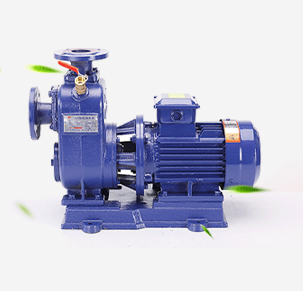TEL:
+86 13120555503
Khmer
- Afrikaans
- Albanian
- Amharic
- Arabic
- Armenian
- Azerbaijani
- Basque
- Belarusian
- Bengali
- Bosnian
- Bulgarian
- Catalan
- Cebuano
- Corsican
- Croatian
- Czech
- Danish
- Dutch
- English
- Esperanto
- Estonian
- Finnish
- French
- Frisian
- Galician
- Georgian
- German
- Greek
- Gujarati
- Haitian Creole
- hausa
- hawaiian
- Hebrew
- Hindi
- Miao
- Hungarian
- Icelandic
- igbo
- Indonesian
- irish
- Italian
- Japanese
- Javanese
- Kannada
- kazakh
- Khmer
- Rwandese
- Korean
- Kurdish
- Kyrgyz
- Lao
- Latin
- Latvian
- Lithuanian
- Luxembourgish
- Macedonian
- Malgashi
- Malay
- Malayalam
- Maltese
- Maori
- Marathi
- Mongolian
- Myanmar
- Nepali
- Norwegian
- Norwegian
- Occitan
- Pashto
- Persian
- Polish
- Portuguese
- Punjabi
- Romanian
- Russian
- Samoan
- Scottish Gaelic
- Serbian
- Sesotho
- Shona
- Sindhi
- Sinhala
- Slovak
- Slovenian
- Somali
- Spanish
- Sundanese
- Swahili
- Swedish
- Tagalog
- Tajik
- Tamil
- Tatar
- Telugu
- Thai
- Turkish
- Turkmen
- Ukrainian
- Urdu
- Uighur
- Uzbek
- Vietnamese
- Welsh
- Bantu
- Yiddish
- Yoruba
- Zulu
Telephone: +86 13120555503
Email: frank@cypump.com
កុម្ភៈ . 18, 2025 06:41 Back to list
advantage chemical pumps
Navigating the world of basement and ejector pumps might seem overwhelming at first, but understanding these essential tools for home water management is crucial for keeping your property safe and dry. With growing concerns about water damage due to extreme weather and increasing property values, having the right knowledge about basement and ejector pumps can save homeowners from substantial repair costs and offer peace of mind.
When evaluating both basement and ejector pumps, professional installation and maintenance are strong recommendations. This ensures not only optimal performance but also extends the lifespan of these systems. Trusting an experienced professional provides the added benefit of expert insights into the most suitable pump types and brands for your specific basement setup, usage needs, and local environmental conditions. Online resources and local service providers often offer free assessments or consultations to help homeowners determine the best pump systems for their homes. It's wise to leverage these opportunities to gain a clearer understanding of individual requirements and explore the latest technological advancements that could enhance pump performance. Ultimately, investing time to thoroughly understand these products demonstrates a commitment to safeguarding your property against water damage and enhancing its functionality. Look for brands with strong reputations and positive customer reviews, as these often reflect product reliability and company trustworthiness. Moreover, staying informed about industry trends and technological improvements ensures your home's flood prevention and wastewater management systems remain state-of-the-art. With the increasing unpredictability of climate patterns, ensuring your basement is equipped with both effective basement and ejector pumps is not just a matter of convenience, but a necessity. By combining authoritative knowledge with practical product expertise, homeowners can effectively manage their water systems and mitigate the risk and expense associated with water damage.


When evaluating both basement and ejector pumps, professional installation and maintenance are strong recommendations. This ensures not only optimal performance but also extends the lifespan of these systems. Trusting an experienced professional provides the added benefit of expert insights into the most suitable pump types and brands for your specific basement setup, usage needs, and local environmental conditions. Online resources and local service providers often offer free assessments or consultations to help homeowners determine the best pump systems for their homes. It's wise to leverage these opportunities to gain a clearer understanding of individual requirements and explore the latest technological advancements that could enhance pump performance. Ultimately, investing time to thoroughly understand these products demonstrates a commitment to safeguarding your property against water damage and enhancing its functionality. Look for brands with strong reputations and positive customer reviews, as these often reflect product reliability and company trustworthiness. Moreover, staying informed about industry trends and technological improvements ensures your home's flood prevention and wastewater management systems remain state-of-the-art. With the increasing unpredictability of climate patterns, ensuring your basement is equipped with both effective basement and ejector pumps is not just a matter of convenience, but a necessity. By combining authoritative knowledge with practical product expertise, homeowners can effectively manage their water systems and mitigate the risk and expense associated with water damage.
Share
Next:
Latest news
-
Reliable Non-Clog Sewage Pumps with GPT-4-Turbo Tech
NewsAug.04,2025
-
High-Performance Air Pumps for Sand & Gravel | Efficient Transport
NewsAug.03,2025
-
ISG Series Vertical Pipeline Pump - Chi Yuan Pumps Co., LTD.|Energy Efficiency, Corrosion Resistance
NewsAug.03,2025
-
ISG Series Pipeline Pump - Chi Yuan Pumps | Energy Efficiency&Compact Design
NewsAug.03,2025
-
ISG Series Vertical Pipeline Pump - Chi Yuan Pumps Co., LTD.|High Efficiency, Low Noise, Durable
NewsAug.02,2025
-
ISG Series Vertical Pipeline Pump - Chi Yuan Pumps | High Efficiency, Low Noise
NewsAug.02,2025










